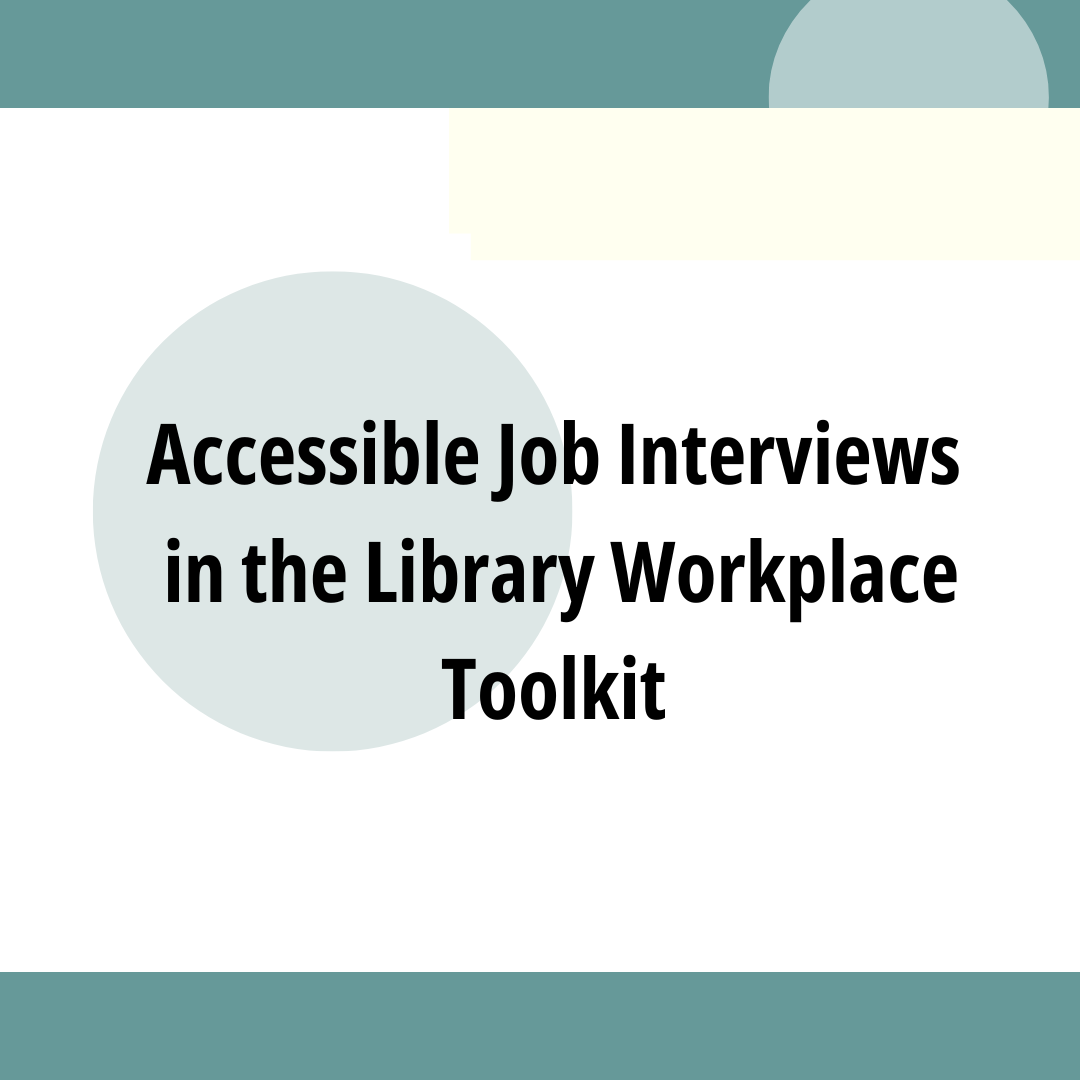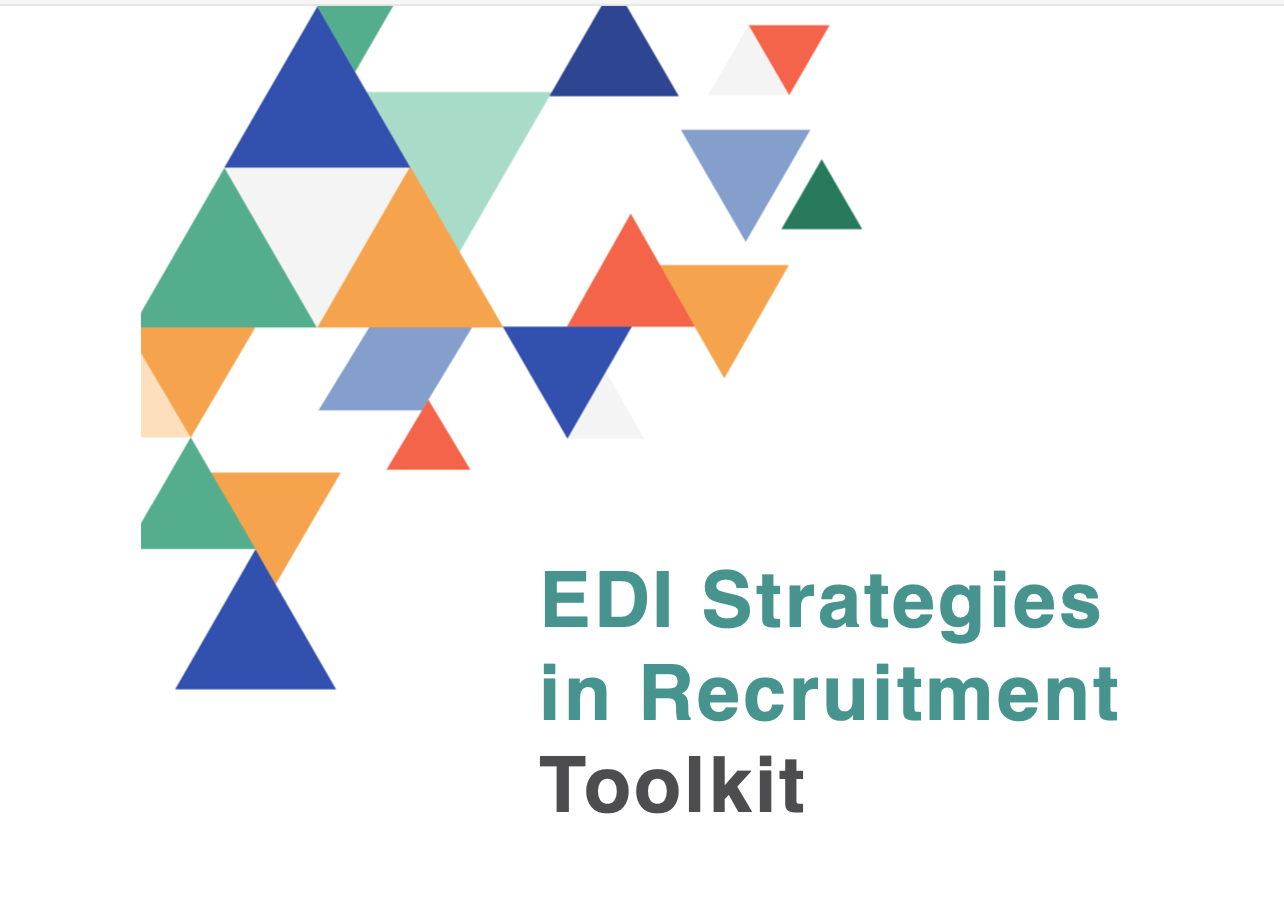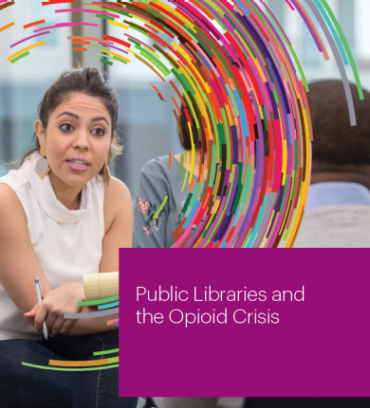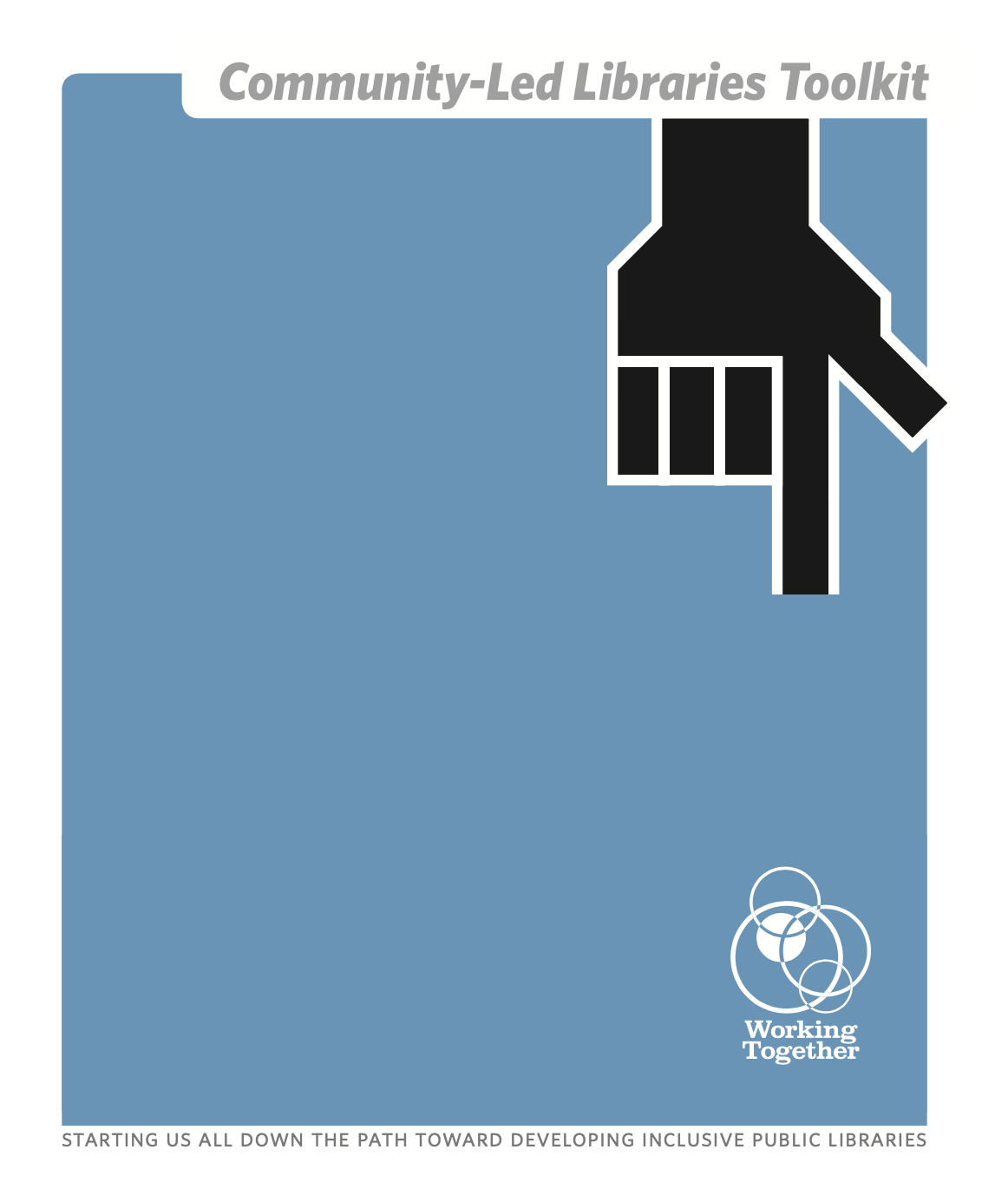The following are a selection of toolkits specific to libraries that BCLA feels are of potential interest to our members. Some toolkits were developed by BCLA, while others were created by external organizations, vetted in our library community.
Accessible Job Interviews in the Library Workplace Toolkit A guide for library workplaces seeking to hire autistic and neurodivergent employees Inspired by the EDI Strategies in Recruitment Toolkit and research that has proved “diverse teams are better at being innovative and creative” and that “teams benefit from broader perspectives with more information and experience brought to the table” (Whu Lee, 2022), this guide draws on much of the same reasoning to advocate for more inclusive hiring practices for autistic library employees. By aiming to recruit more autistic librarians, BC’s libraries will become more highly representative of all of the types of people who live, research, and read in British Columbia.
Created by Celia Hagey as part of her MLIS degree.
The EDI Strategies in Recruitment Toolkit was built by the contributions of Indigenous, Black, and People of Colour (IBPOC) who have been through the hiring process in libraries and offered their personal experiences and insights through surveys and interviews. Contributions from library leaders and supervisors who have been responsible for hiring and taken part in the recruitment process also informed the strategies shared here. After 132 online survey responses, 21 follow up interviews, and numerous consultations, this project would not have been possible without the support, openness, and collegial spirit of our colleagues at all sides of the table.
Project led by Jessica Whu Lee
Project sponsored by British Columbia Library Association
The CULC/CBUC Safety and Security Toolkit was developed based on input and resources shared by the CULC/CBUC Safety and Security Working Group members. “Across Canada, public libraries are facing an unprecedented increase in the frequency and intensity of security and safety incidents in their spaces,” and this toolkit consists of best practices to promote learning, support and collaboration, while raising awareness of the complex societal issues that public libraries are facing. For an introduction and overview of the toolkit, visit the Library Safety website and please note that the toolkit will be updated regularly.
Project led by Canadian Urban Libraries Council / Conseil des Bibliothèques Urbaines du Canada
To aid staff at public libraries in determining how their library can address opioid use disorder in their community, WebJunction has developed the Opioid Crisis Support Kit for Public Libraries. This resource will help strengthen libraries and the communities they serve as we continue to struggle with the opioid crisis. For more information about the toolkit, including how it was developed and tested, and a Word doc version, visit WebJunction.org.
Project led by WebJunction
The Working Together Project used a community development approach to reshape and inspire the way libraries design programs, services and policies. The purpose of the Project was to demonstrate that libraries could be made stronger and more relevant to the communities they served when their work was guided by a community’s expressed understanding of its needs and wants. How to work in meaningful and equitable ways with community members, especially vulnerable community members, was the primary goal of the Project. The resulting toolkit is a final deliverable for the Project and was meant to capture the lessons learned during the four years that the Project ran.





